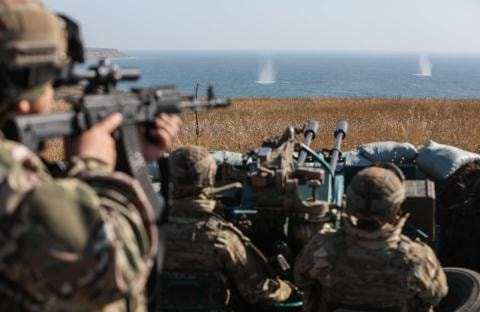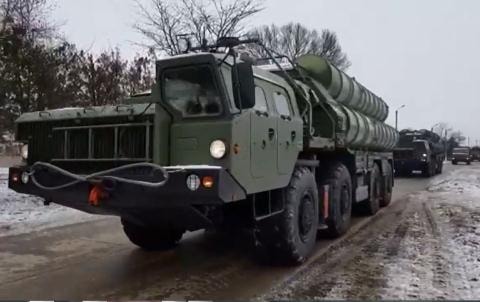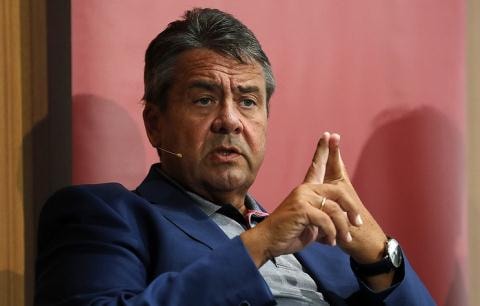Former German Foreign Minister: Don't go to war with Russia over Ukraine
Former German Foreign Minister Sigmar Gabriel gave an interview to NTV on December 2 and expressed his opposition to Ukraine's escalation of tensions in the incident by drawing European countries to have a military presence in the Azov Sea, which shares territorial waters with Russia.
Accordingly, when Ukraine proposed inviting Germany to have a military presence in the Azov Sea, Mr. Sigmar Gabriel said: "I think we should not let Ukraine drag us into a war. Ukraine tried to do that."
In an interview published in the Tagesspiegel newspaper on Saturday, the former German foreign minister also criticized Kiev’s demands to send warships to the Black Sea and to close international ports to Russian ships sailing from the Sea of Azov. Gabriel also called Ukraine’s move to call on other countries to close international ports to Russian ships “a new version of rifle diplomacy.”
|
Former German Foreign Minister Sigmar Gabriel. |
Instead of this action of "stirring up a conflict", Mr. Gabriel said that Germany's role should be to make efforts to de-escalate and reconcile rather than stir up a conflict.
He suggested that when Germany gets a non-permanent seat on the UN Security Council in January 2019, it should immediately propose the implementation of the UN mandate in the situation in Donbass. Only then can the completely hopeless conflict in this region and the tense relations between Russia and Ukraine be completely resolved.
Earlier, in an interview with the German Funke Media Group, Ukrainian President Petro Poroshenko said: "We need a greater military presence of Germany and its allies in the Black Sea, as a deterrent to Russia." According to Mr. Poroshenko, the international community also needs to consider expanding sanctions against Russia and suspending the construction of the Nord Stream 2 gas pipeline project.
 |
| Ukrainian army fires live ammunition in anti-sea landing exercise |
The Ukrainian leader has repeatedly called on the West to increase its presence in the Black Sea after three Ukrainian naval vessels entered Russian territorial waters near the Kerch Strait.
He mentioned the military solution with Russia almost immediately after this incident. However, the reactions of European countries were not the same.
Two key EU members, Germany and France, have opposed new sanctions against Russia. European members that have had grudges against Russia, such as Britain and Poland, have strongly supported new sanctions.
Under pressure on the sidelines of the G-20 Summit on December 1, Russian President Vladimir Putin made his most public statements against Ukraine and the incident in the Kerch Strait. Mr. Putin rejected international calls to release three Ukrainian naval vessels with 24 sailors on board. Mr. Putin said that these subjects had illegally crossed the Russian border, and said that he was planning to publish evidence of Kiev's provocative actions in the Black Sea in the form of legal documents.
 |
| The fourth S-400 missile defense system was deployed by Russia in Crimea. |
"We have clearly expressed our position and published the details of the incident. No one can deny it. How can we deny it when the documents from the ships themselves say that they were sent on a mission to cross our territorial waters and pass through the Kerch Strait. It was a premeditated provocation. This is evidence from documents and testimonies of (Ukrainian) sailors. There is nothing to argue about," Putin emphasized.
Regarding the pressure from the West demanding that Moscow release the people and return the ship, Mr. Putin emphasized that Ukraine itself has no proposal to return the people, while Western countries seem to be taking care of things that are not their business.
Obviously, the Russian President has seen that Ukraine does not want to settle peacefully with Russia because of this event, but wants to take more aggressive actions. Therefore, Kiev is eager to call on European countries, European members of the US military command arm, NATO, to exert military force against Russia. Meanwhile, European countries have no choice but to show support for Ukraine but at a level that is not too tense with Russia.


